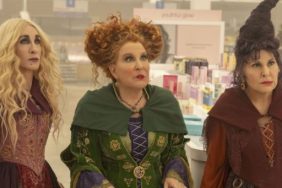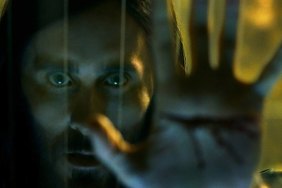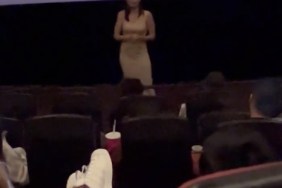
CraveOnline: The script has a lot of impressive credits on it: Jeb Stuart and David Twohy. Do you remember how those drafts shook out?
Andrew Davis: I never met David Twohy. David Twohy wrote the train crash. That’s about all I’ll say. He wasn’t involved in anything we did. Jeb Stuart was there with us, a great guy and he was basically responding to things we were coming up with all the time. The reality is, and Warners can’t talk about this because of the Writers Guild, but Tommy Lee Jones, myself, Harrison and other people who were close with us, especially coming up with the whole plot about the pharmaceuticals, they were uncredited writers.
Joey Pants wrote most of his own dialogue, you know what I mean? Not to demean the writers, it just wasn’t the way it worked out. This picture was going into production, Harrison had a window, we had to get this thing [out]. The movie was edited, from the last day of shooting until it was in the theaters was ten weeks. Edited, mixed, put together in ten weeks.
Not meant as any offense to the writers. It’s just always interesting, the movie that could have been and how these artistic things evolve.
Yeah, it basically was a collaboration with lots of people and I think what you get out of it is really talented people being able to contribute and collaborate. In the theater, you’re able to work with the actors and work with the director and work with the writers. People come up with ideas and they say, “Okay, let’s try this” and that’s sort of what we did. We’d go to work every day. I knew what the scene had to accomplish dramatically from a plot point and from a dramatic point. We would take the words which we had to work with and we would play with them and manipulate them, rewrite them. The script supervisor would put it down. People would go off and do makeup and hair. Then we’d light it and come back and shoot it. That’s how we did it.
The spinoff U.S. Marshals was very good also, and I know you didn’t direct that but did you think the series had potential to continue?
I didn’t. I was doing A Perfect Murder when they were doing that movie also, with Arnold Kopelson also producing. I think the idea of bringing Tommy Lee and Harrison back together with a marshal and a doctor, not necessarily chasing each other, but working together to solve a problem could be done, yes. I have an idea for something like that. It won’t be called The Fugitive but I think that those two characters are very interesting together.
Did you ever read the script for The Fugitive 2 where Richard was back on the run with Gerard chasing him again.
No.
I don’t know if it was a real script.
That Warners developed after this version?
It became U.S. Marshals when I guess Harrison Ford didn’t want to do it.
I see. I wasn’t on board then.
You also might have made the last pre-9/11 terrorist movie, Collateral Damage, which was of course delayed after 9/11 happened. Looking back, do you think that was the end of an era?
It’s interesting because that movie was originally set in the Middle East and I didn’t want to do another Arab bashing movie. I convinced everybody to set it in Colombia where I had worked as a young cameraman. I thought it was a perfect situation to have a fireman who loses his family to a terrorist event go down to find the man who killed his family and find out the same things had happened to their family down there, with what had been going on with the War on Drugs and FARK and all of the the revolutionary issues in Colombia which is actually happening today. There are demonstrations we don’t even know about where they’re trying to get a new trade agreement with Colombia which people are in the streets about.
I think the idea of terrorism is not a subject that you have to run away from because there’s all kinds of terrorism. It’s not necessarily done by individuals. It can be done by governments, it can be done by politicians, it can be done by religious organizations. There’s all kinds of different things so I think that basically fear is a common theme in movies. It translates much easier than comedy does. Whatever is funny in Thailand isn’t necessarily funny here. So fear and danger is something that travels around the world very well and people go see those movies on a regular basis.








